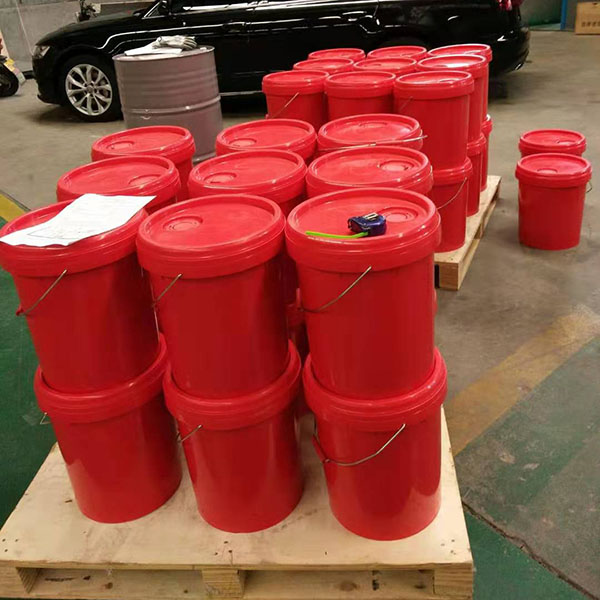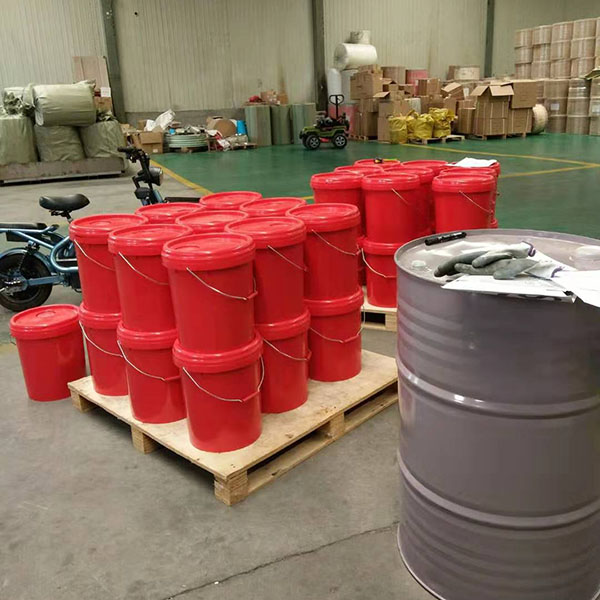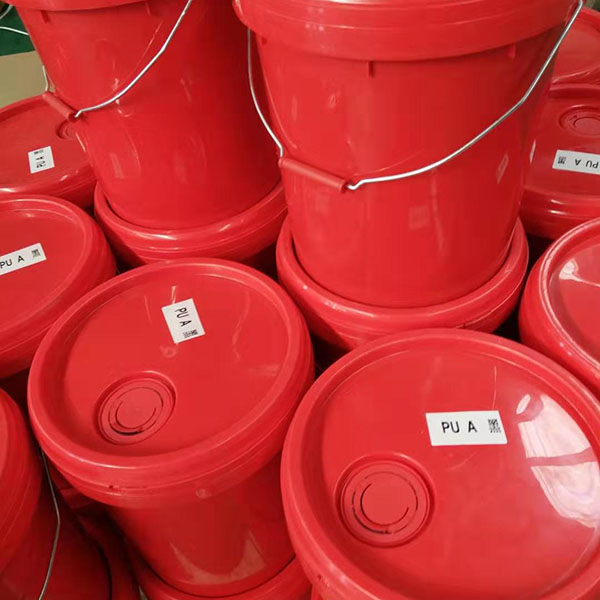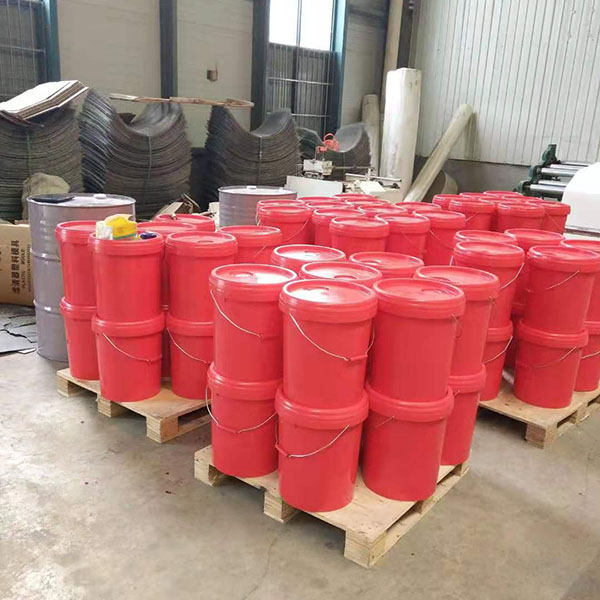Aug . 22, 2025 11:00 Back to list
Active Carbon Air Filter for Air Purifier - Superior Odor Removal
The Imperative Role of active carbon air filter for air purifier in Modern Environments
In an era marked by increasing concerns over indoor air quality (IAQ), the demand for sophisticated air purification solutions has never been higher. At the forefront of this technological advancement is the active carbon air filter for air purifier, a critical component designed to remove volatile organic compounds (VOCs), unpleasant odors, and gaseous pollutants from ambient air. Unlike particulate filters that trap solid particles, activated carbon filters excel in molecular adsorption, making them indispensable in residential, commercial, and industrial settings. This article delves into the intricate details of these filters, from their manufacturing processes and technical specifications to their diverse application scenarios and overarching advantages in the B2B landscape.
The global market for air purification technologies is experiencing robust growth, driven by stringent environmental regulations, heightened public health awareness, and the proliferation of industrial activities contributing to air pollution. Industries ranging from HVAC and automotive to medical facilities and consumer electronics are increasingly relying on advanced filtration systems. The efficacy of an active carbon air filter for air purifier lies in its highly porous structure, derived from specially treated carbon materials, which provides an extensive surface area for the chemical binding of gaseous contaminants. This foundational technology is continuously evolving, incorporating innovations such as improved carbon impregnation techniques and robust structural designs, often utilizing specialized adhesives like PU glue to ensure optimal performance and longevity.
Manufacturing Process: Crafting the Superior Active Carbon Filter
The production of a high-performance active carbon air filter for air purifier is a multi-stage process, demanding precision and adherence to strict quality controls. It integrates material science, chemical engineering, and advanced manufacturing techniques to create a product capable of reliable and efficient pollutant adsorption.
Key Process Steps:
- Activated Carbon Sourcing & Preparation: The journey begins with selecting appropriate raw materials, typically coconut shells, wood, or coal, which are carbonized and then activated through steam or chemical processes. This activation creates a vast network of micropores and mesopores, significantly increasing the carbon's surface area (often exceeding 1000 m²/g), which is crucial for effective adsorption. For specialized applications, the carbon may be impregnated with chemicals like potassium iodide or phosphoric acid to enhance its capacity for specific gaseous pollutants (e.g., formaldehyde, sulfur dioxide).
- Filter Media Formation: Activated carbon can be incorporated into filter media in several forms: granular activated carbon (GAC) beds, carbon-impregnated fibrous media (e.g., wood pulp air filter paper or synthetic blends), or pleated media. For pleated designs, the chosen base material (e.g., glass fiber, synthetic non-wovens, or wood pulp filter tea bag paper roll for less demanding applications) is saturated or coated with activated carbon particles. This media is then pleated to maximize surface area within a compact design.
- Frame Construction & Sealing: The pleated or bedded filter media is then housed within a robust frame, typically made from high-grade plastics (like polypropylene), galvanized steel, or aluminum. The integrity of the frame and the seal between the media and the frame are paramount to prevent air bypass, which would compromise filtration efficiency. This is where advanced adhesives play a critical role. PU glue, including formulations like orange pu glue, black pu glue, and red pu glue, is extensively used for its superior adhesion, flexibility, and resistance to environmental factors. These polyurethane adhesives create durable, airtight seals, ensuring that all incoming air passes directly through the activated carbon media, characteristic of a high-quality pu air filter.
- Assembly and Curing: Components are assembled, and the PU glue is applied, followed by a curing process to achieve maximum bond strength. This step is critical for the long-term structural stability and filtration performance of the filter air purifier element.
- Quality Control and Testing: Each batch undergoes rigorous testing to ensure it meets performance specifications. This includes tests for pressure drop, initial resistance, dust holding capacity (if combined with particulate media), and most importantly, gas adsorption efficiency for various target VOCs, typically conforming to standards such as ISO 10121 or ASHRAE 52.2. Service life is estimated based on predicted contaminant concentrations and airflow rates.

Figure 1: Illustration of Activated Carbon Filter Media Assembly.
Target industries for these filters span a broad spectrum, including HVAC systems in commercial buildings, automotive cabin air filtration, medical cleanrooms, semiconductor manufacturing, and specialized applications in the petrochemical and metallurgy sectors where precise air quality control is critical. Advantages include significant energy savings by reducing the load on ventilation systems by recirculating treated air, and superior corrosion resistance due to the removal of corrosive gases.
Technical Specifications and Performance Parameters
Understanding the technical specifications of an active carbon air filter for air purifier is crucial for selecting the appropriate solution for specific environmental challenges. Key parameters define their effectiveness and operational characteristics.
| Parameter | Description | Typical Value Range |
|---|---|---|
| Carbon Type | Source material and activation method | Coconut Shell, Wood-based, Coal-based; Impregnated if specific gases targeted |
| BET Surface Area | Brunauer–Emmett–Teller surface area, indicator of adsorption capacity | 800 - 1500 m²/g |
| CTC Value (Carbon Tetrachloride Activity) | Measure of carbon's capacity to adsorb vapors | 50 - 70% (by weight) |
| Airflow Capacity | Volume of air processed per unit time | 100 - 3400 m³/h (depending on filter size) |
| Initial Pressure Drop | Resistance to airflow at initial operation | 50 - 150 Pa @ nominal airflow |
| VOC Removal Efficiency | Percentage of Volatile Organic Compounds removed | > 90% for target VOCs (e.g., toluene, formaldehyde) |
| Service Life | Expected operational duration before saturation | 6 - 24 months (environment-dependent) |
| Operating Temperature Range | Temperature limits for effective operation | -20°C to +80°C |

Figure 2: Close-up of filter media showcasing carbon impregnation.
These specifications, often validated through independent testing adhering to standards like ISO 16890 (for particulate filters often combined with carbon) or specific gas phase filtration test methods, ensure that the air filter for air purifier can meet the rigorous demands of various applications. The precise combination of carbon density, media design, and structural integrity, often fortified by robust PU glue, determines its overall performance and value proposition.
Application Scenarios and Technical Advantages
The versatility of the active carbon air filter for air purifier allows for its deployment across a wide array of demanding environments, each benefiting from its specific technical advantages.
Key Application Sectors:
- HVAC Systems (Commercial & Industrial): Critical for maintaining optimal indoor air quality in offices, hospitals, schools, and data centers. They effectively remove odors, fumes, and harmful VOCs, contributing to occupant health and system longevity.
- Automotive Cabin Air Filtration: Protects vehicle occupants from exhaust fumes, industrial pollutants, and unpleasant road odors. High-performance air filter for air purifier units are standard in modern vehicles, often combined with particulate filters. While distinct, the principles apply.
- Medical and Pharmaceutical Facilities: Essential for preventing cross-contamination and protecting sensitive processes from airborne molecular contamination, ensuring sterile and safe environments.
- Food Processing and Odor Control: Eliminates odors generated during food production, processing, and waste management, ensuring compliance with environmental regulations and improving working conditions.
- Museums and Archives: Protects valuable artifacts and documents from corrosive gases and airborne pollutants that can cause degradation.
- Electronics Manufacturing (Cleanrooms): Guards against molecular contamination that can compromise the integrity of sensitive electronic components.
Technical Advantages:
- Superior VOC and Odor Removal: Adsorption mechanism effectively captures a wide range of gaseous pollutants that particulate filters cannot address, offering comprehensive air purification.
- Corrosion Prevention: By removing corrosive gases like sulfur dioxide (SO₂) and hydrogen sulfide (H₂S), these filters protect sensitive electronics and machinery in industrial settings, extending equipment lifespan and reducing maintenance costs.
- Enhanced Indoor Air Quality (IAQ): Significantly improves IAQ, leading to increased productivity, better health outcomes for occupants, and compliance with health and safety standards.
- Energy Efficiency: When integrated into HVAC systems, these filters allow for greater recirculation of treated air, reducing the need for costly outdoor air intake and thus lowering energy consumption for heating and cooling.
- Customizable Adsorption Profiles: Different types of activated carbon or chemically impregnated carbons can be selected to target specific pollutants, offering tailored solutions for diverse industrial needs.

Figure 3: Active carbon filter modules installed in an industrial air handling unit.
The robust construction and dependable sealing, often achieved with specialized PU glue, ensure that these filters maintain their performance even in challenging industrial environments. This reliability is crucial for applications where air quality directly impacts operational efficiency and regulatory compliance.
Vendor Comparison and Customized Solutions
Choosing the right supplier for an active carbon air filter for air purifier requires careful consideration of various factors beyond just price. Vendor reputation, technical support, customization capabilities, and adherence to international standards are paramount for B2B procurement.
| Feature/Vendor | Vendor A (Premium) | Vendor B (Standard) | Vendor C (Budget-Friendly) |
|---|---|---|---|
| Carbon Quality (BET m²/g) | >1200 (Impregnated options) | 800-1000 | 600-800 |
| VOC Removal Efficiency (Toluene) | >98% | >90% | >80% |
| Frame Material & Integrity | Robust ABS/Metal, PU glue sealed | PP/Cardboard, standard sealant | Cardboard, basic sealant |
| Certifications | ISO 9001, ISO 14001, ASHRAE 52.2 compliant | ISO 9001 | Basic QC |
| Customization Options | Full bespoke design, specific impregnation | Limited standard sizes and carbon types | Minimal |
| Typical Service Life | 12-24 months | 6-12 months | 3-6 months |
Customized Solutions:
For complex industrial processes, off-the-shelf solutions may not suffice. Leading manufacturers offer bespoke solutions for the active carbon air filter for air purifier, including:
- Tailored Carbon Impregnation: Developing activated carbon with specific chemical impregnations to target unique contaminant profiles (e.g., ammonia, acid gases, mercury vapors).
- Custom Dimensions and Form Factors: Manufacturing filters to fit existing air handling units or specialized equipment, optimizing space and airflow.
- Multi-stage Filtration Integration: Combining activated carbon media with HEPA or MERV-rated particulate filters into a single unit to address both gaseous and particulate matter.
- High-Temperature/High-Humidity Resistance: Designing filters with specialized binders and frames using durable PU glue to withstand extreme operating conditions prevalent in certain industrial environments.

Figure 4: Diverse range of active carbon filter configurations for varied applications.
A vendor's ability to provide detailed technical consultations, conduct pilot tests, and offer comprehensive post-sales support is a strong indicator of their authority and trustworthiness in the B2B sector. Our commitment to utilizing premium components, including specialized PU glue for superior bonding, ensures that our custom solutions not only meet but exceed performance expectations.
Application Case Studies and Customer Feedback
Real-world application demonstrates the tangible benefits of a high-quality active carbon air filter for air purifier.
Case Study 1: Semiconductor Manufacturing Facility
A leading semiconductor manufacturer faced challenges with airborne molecular contamination (AMC) in their cleanroom environments, leading to decreased yields and product defects. Traditional HEPA filters were insufficient to address gaseous contaminants. We implemented a custom multi-stage filtration system incorporating specialized granular activated carbon filters designed for trace acid gas and ammonia removal. Within three months, AMC levels dropped by 95%, resulting in a 15% increase in production yield. The filters' robust construction, secured with high-grade PU glue, ensured zero bypass and consistent performance under stringent cleanroom conditions.
Case Study 2: Commercial Office Building HVAC Upgrade
A large corporate office building in a metropolitan area struggled with persistent "sick building syndrome" symptoms, attributed to VOCs from new furnishings, cleaning products, and outdoor air pollution. By replacing standard pleated filters with combined particulate-and-carbon filters (PCC filters) featuring an active carbon air filter for air purifier component, the building significantly improved its IAQ. Post-installation surveys indicated a 70% reduction in odor complaints and a notable improvement in employee comfort and reported well-being. The energy consumption for ventilation also decreased by 10% due to optimized air recirculation. This upgrade highlighted the combined benefits of enhanced filtration and operational efficiency.
Customer Feedback:
"The performance of their air filter for air purifier exceeded our expectations. Our facility's air quality has dramatically improved, and the filters have proven incredibly durable, thanks in part to the quality of their bonding agents. This has translated into tangible cost savings and a safer working environment."
Trustworthiness: FAQ, Lead Time, Warranty, and Support
Frequently Asked Questions (FAQ):
- Q: How do I determine the correct active carbon air filter for air purifier for my application?
- A: Proper selection depends on the specific gaseous contaminants present, airflow requirements, existing HVAC system specifications, and desired removal efficiency. Our technical team provides expert consultation to help identify the optimal filter type and configuration, including specific carbon impregnations if needed.
- Q: What is the typical service life of your active carbon filters?
- A: Service life varies significantly based on contaminant concentration, airflow, relative humidity, and operating hours. Generally, our filters last between 6 to 24 months in typical applications. We offer monitoring solutions to predict replacement cycles accurately.
- Q: Can your filters handle both particulate matter and gaseous pollutants?
- A: Yes, we offer combined filters that integrate both activated carbon media for gaseous pollutant removal and high-efficiency particulate media (e.g., HEPA or ePM1 according to ISO 16890) for particulate filtration. This provides a comprehensive air filter for air purifier solution.
Lead Time and Fulfillment:
Our standard lead time for most common active carbon air filter for air purifier products is 2-4 weeks. For custom orders or large-volume requests, lead times will be communicated upon project scope definition, typically ranging from 4-8 weeks. We maintain robust supply chain management to ensure timely delivery and offer expedited shipping options for urgent requirements.
Warranty Commitments:
We stand by the quality of our products. All our air filter for air purifier units come with a standard 12-month limited warranty against manufacturing defects, effective from the date of purchase. Specific warranty terms for customized solutions will be outlined in the project agreement.
Customer Support:
Our dedicated customer support team is available from Monday to Friday, 9:00 AM to 5:00 PM (GMT+8), to assist with product inquiries, technical support, order tracking, and after-sales service. We offer multi-channel support via phone, email, and a dedicated online portal for registered B2B clients.
Conclusion
The active carbon air filter for air purifier represents a cornerstone technology in achieving superior indoor and industrial air quality. Its ability to effectively adsorb gaseous pollutants, combined with advanced manufacturing processes and robust materials like high-performance PU glue, makes it an indispensable component for a multitude of critical applications. As industries continue to face evolving environmental challenges, the demand for reliable, efficient, and customizable air purification solutions will only grow, cementing the role of activated carbon filters as vital assets for health, safety, and operational excellence.
References
- ISO 10121-1:2014 - Test methods for assessing the performance of gas-phase air cleaning media and devices for general ventilation - Part 1: Gaseous filtration media. International Organization for Standardization.
- ASHRAE Standard 52.2-2017 - Method of Testing General Ventilation Air-Cleaning Devices for Removal Efficiency by Particle Size. American Society of Heating, Refrigerating and Air-Conditioning Engineers.
- Brunauer, S., Emmett, P. H., & Teller, E. (1938). Adsorption of Gases in Multimolecular Layers. Journal of the American Chemical Society, 60(2), 309-319.
- Carbon Tetrachloride (CTC) Adsorption Test Standard ASTM D3467. ASTM International.
- Poliuretanos: Producción, Propiedades y Aplicaciones (Polyurethanes: Production, Properties, and Applications). Technical literature from leading chemical suppliers on adhesive properties.
This is the last article
-
Active Carbon Air Filter for Air Purifier - Superior Odor Removal
NewsAug.22,2025
-
Premium Active Carbon Air Filter for Air Purifiers - Odor Removal
NewsAug.21,2025
-
Premium Acrylic-Resin Air Filter Paper in Roll | High Efficiency
NewsAug.19,2025
-
PLAB-6 A B Two Compounds Filter End Cap Gluing Machine-Hebei Filter Man|Precision Gluing,Automated Production
NewsAug.18,2025
-
PLAB-6 A B Two Compounds Filter End Cap Gluing Machine - Hebei Filter Man Automotive Parts Trading Co., Ltd | Adjustable Gluing Parameters, Automated Precision
NewsAug.18,2025
-
PLAB-6 A/B Two Compounds Filter End Cap Gluing Machine-Hebei Filter Man|Precision Engineering&Efficiency
NewsAug.18,2025
